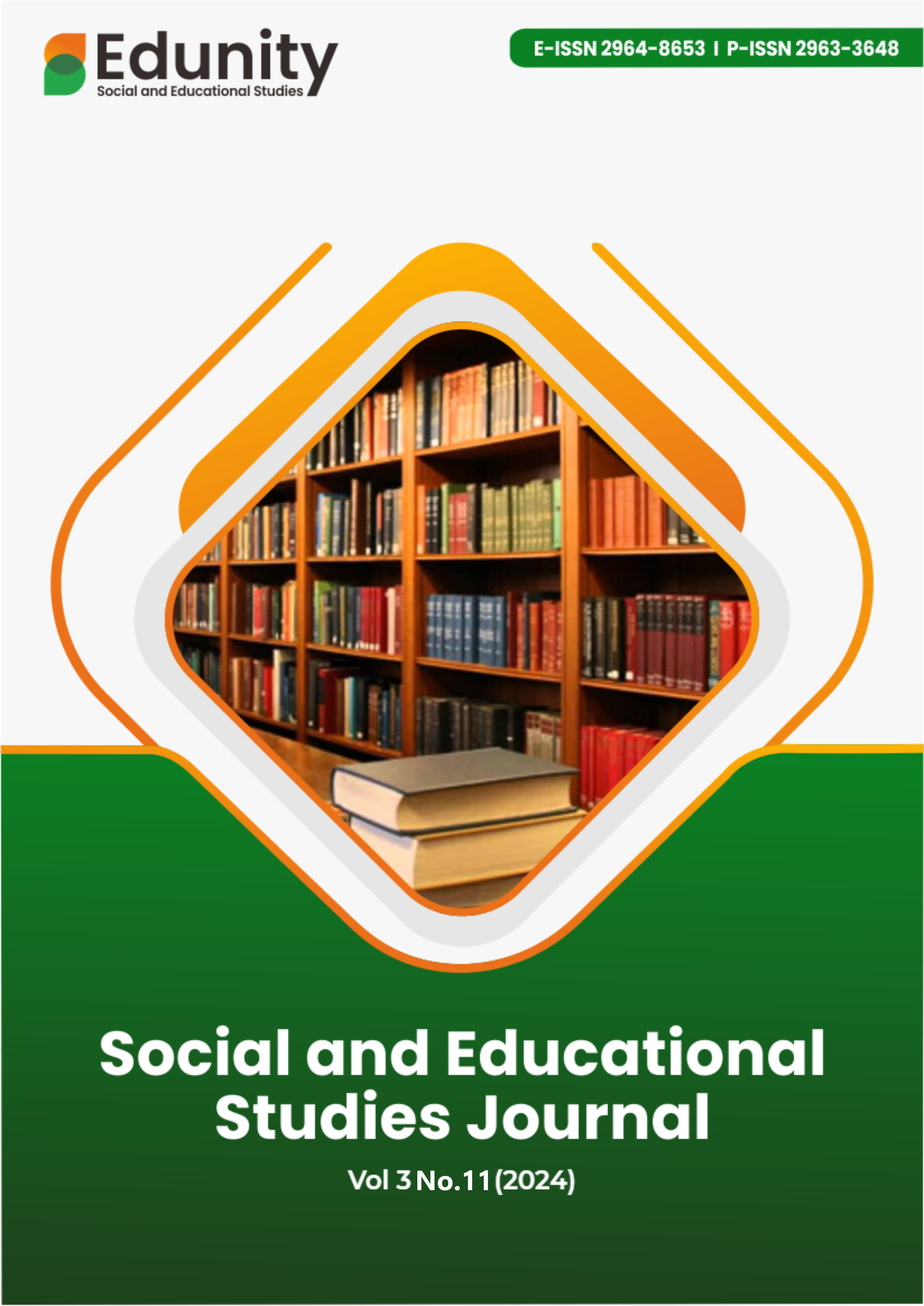Legal Uncertainty for Persons with Disabilities as Victims and Witnesses in Criminal Justice in Indonesia
DOI:
https://doi.org/10.57096/edunity.v3i11.333Keywords:
legal uncertainty, persons with disabilities, witnesses, victims, criminal justiceAbstract
This study examines the legal uncertainty faced by persons with disabilities as witnesses and victims within Indonesia's criminal justice system. Although there are regulations that acknowledge the rights of persons with disabilities, their implementation often encounters various obstacles, ranging from inadequate accommodations to limited understanding among law enforcement officials. This legal uncertainty adversely impacts access to justice for persons with disabilities, who often feel marginalized within the legal process. Therefore, this research also discusses efforts to fulfill the rights of persons with disabilities as witnesses and victims, including the importance of training for law enforcement personnel, providing appropriate accommodations, and conducting comprehensive personal assessments to meet their specific needs. This study is expected to provide recommendations for policymakers to enhance legal protection and ensure accessibility for persons with disabilities within the criminal justice system.
References
Absolor, J. (2023). The Lived Experiences of the Persons with Disabilities
(PWDs) in the orkplace: A Phenomenological Study. International Journal of
Social Science and Uman Research.
Akasreku, B. Dela, Habib, H., & Ankomah, A. (2018). Pregnancy in disability:
community perceptions and personal experiences in a rural setting in
Ghana. Journal of Pregnancy, 2018(1), 8096839.
Amitsis, G., & Marini, F. (2023). The EU framework of people with disabilities’
rights-an intertemporal equilibrium between regulatory and policy
paradigms. In Research Handbook on Disability Policy (pp. 186–201). Edward
Elgar Publishing.
Baldridge, D. C., Beatty, J. E., Konrad, A. M., & Moore, M. E. (2016). People with
disabilities. The Oxford Handbook of Diversity in Organizations, 469–498.
D. L. Kusworo and R. Fathonah, "Analisis Implementasi Diversi Dalam
Penyelesaian Perkara Anak Pelaku Tindak Pidana Pencurian (Studi Kasus
Pengadilan Negeri Liwa)," Inovasi Pembangunan: Jurnal Kelitbangan, vol.
, no. 2, 2022.
E. Panca and N. Patria, "DISABILITAS Pendahuluan Penegakan Hak Asasi
Manusia ( HAM ) Di Indonesia Merupakan Salah Satu Amanat Reformasi," Mimbar keadilan, vol. 15, no. 45, 2022.
Khanal, S. P. (2014). Persons with disability and their characteristics. Population
Monograph of Nepal, 2(9), 351–373.
Morgan, J. N. (2021). Policing under disability law. Stan. L. Rev., 73, 1401.
M. El-Muhta, Hak Asasi Manusia Dalam Konstitusi Indonesia, Jakarta : Prenada
Media, 2017
Nasution and B. Johan, Negara Hukum dan Hak Asasi Manusia, Bandung:
Mandar Maju, 2014, pp. 25-30.
O’Brien, C. (2022). Article 26–Integration of Persons with Disabilities. The EU
Charter of Fundamental Rights, 743–778.
P. S. H. A. M. U. I. I. (. UII), AksebilitasPeradilan Bagi Penyandang Disabilitas,
Yogyakarta: Pusham UII, 2015, pp. 12-14.
R. Tomalil, Hukum Pidana, Sleman: Deepublish, 2019, p. 39.
Whilby, D. (2024). Perceptions of Developmental Disability Service Providers, on
How the Judicial System Responses to Persons With Developmental Disabilities.
Walden University.
Yell, M. L., Katsiyannis, A., & Bradley, M. R. (2017). The Individuals with
Disabilities Education Act: The evolution of special education law. In
Handbook of special education (pp. 55–70). Routledge.

Downloads
Published
Issue
Section
License
Copyright (c) 2024 Popy Rakhmawaty, Zudan Arief Fakrulloh

This work is licensed under a Creative Commons Attribution-ShareAlike 4.0 International License.
Authors who publish with this journal agree to the following terms:
- Authors retain copyright and grant the journal right of first publication with the work simultaneously licensed under aCreative Commons Attribution-ShareAlike 4.0 International (CC-BY-SA). that allows others to share the work with an acknowledgement of the work's authorship and initial publication in this journal.
- Authors are able to enter into separate, additional contractual arrangements for the non-exclusive distribution of the journal's published version of the work (e.g., post it to an institutional repository or publish it in a book), with an acknowledgement of its initial publication in this journal.
- Authors are permitted and encouraged to post their work online (e.g., in institutional repositories or on their website) prior to and during the submission process, as it can lead to productive exchanges, as well as earlier and greater citation of published work.







